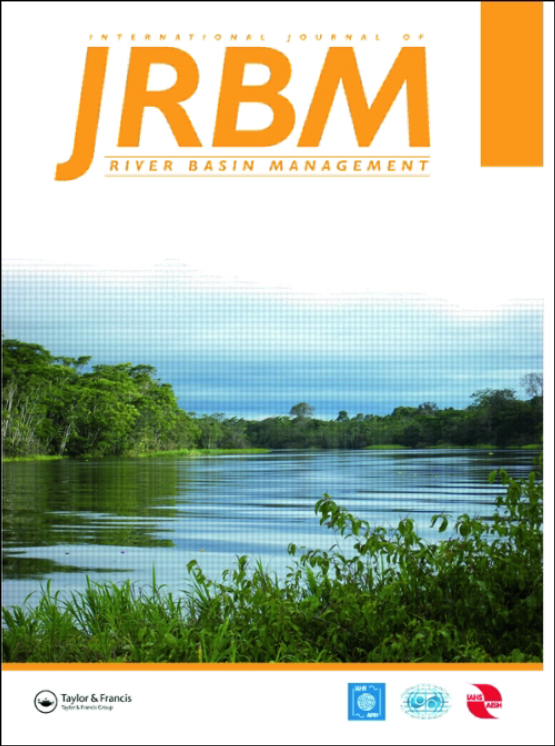Submit a Manuscript to the Journal
International Journal of River Basin Management
For a Special Issue on
From data to decision: stakeholder-driven approaches for a resilient water future
Manuscript deadline

Special Issue Editor(s)
Pedro Martínez-Santos,
Universidad Complutense de Madrid, Spain
pemartin@ucm.es
From data to decision: stakeholder-driven approaches for a resilient water future
Demands for more integrated, responsive, and inclusive water governance are gaining importance in the face of accelerating climate variability, population growth, and competition over finite water resources worldwide. Traditional top-down water management approaches are increasingly insufficient in addressing the complex, multi-scalar challenges that define contemporary water systems. This special issue proposes to foreground the critical importance of stakeholder-driven methodologies that translate data into actionable knowledge for enhanced water resilience at the river basin scale.
Recent advances in data collection and data analysis tools—ranging from remote sensing and in-situ monitoring to citizen science and digital platforms—have expanded our ability to characterize hydrological systems in unprecedented detail. However, the value of this information remains limited unless effectively used in decision-making. The emerging field of “data-to-decision” frameworks highlights the need for translational mechanisms that link scientific knowledge with stakeholder priorities, values, and institutional capacities. Bridging this gap requires co-produced knowledge, modelling approaches that take stakeholders into consideration directly, and iterative engagement processes that promote mutual learning and trust among researchers, policymakers, water managers, and local communities.
This special issue seeks to explore how stakeholder-driven approaches can be systematically integrated into decision-making processes to build adaptive capacity and social-ecological resilience. Contributions consider different spatial and temporal scales to critically assess methodological innovations, policy instruments, decision-support tools, and institutional arrangements that facilitate the translation of complex water data into decisions that are both scientifically robust and socially legitimate. Case studies from diverse hydrological, geographic, and socio-political contexts are especially encouraged, as these provide critical insights into the operationalization of stakeholder-engaged data to decision frameworks.
Given the increasing emphasis on transdisciplinary research, the imperative to democratize water governance, and the growing availability of high-resolution data, the moment is ripe for a concerted scholarly examination of how data can be transformed into decisions through inclusive and stakeholder-responsive processes across different spatial and temporal scales. In this context, a fundamental goal of this special issue is to offer an interdisciplinary platform for advancing theory, practice, and policy around participatory water management in the face of uncertainty.
Special Issue Editors
Pedro Martínez-Santos, Universidad Complutense de Madrid, Spain, pemartin@ucm.es
Albretch Weerts, Deltares, The Netherlands, Albrecht.Weerts@deltares.nl
Harm Duel, Deltares, The Netherlands, Harm.Duel@deltares.nl
Helmut Habersack, Institute of Hydraulic Engineering and River Research, Austria, helmut.habersack@boku.ac.at
Michiel Blind, Deltares, The Netherlands, Michiel.Blind@deltares.nl
Leandro Ávila, Research Centre Jülich, Germany, l.avila@fz-juelich.de
Maggie Kossida, SEVEN-Engineering Consultants, Greece, mkossida@seven-solutions.eu
Virginie Keller, UK Centre for Ecology & Hydrology, United Kingdom, vke@ceh.ac.uk
Submission Instructions
Topics
This special issue welcomes contributions from a wide variety of perspectives, including:
- Data-driven and process-driven models in river basin management, potentially including interactions between both approaches.
- Methodologies for engaging stakeholders in the co-design of basin-scale water monitoring systems, models, and management strategies.
- Development and application of tools (e.g., dashboards, scenario planning) that support stakeholder involvement in water management.
- Case studies on innovations that enable collaborative water governance and resilient management.
- Exploring hybrid approaches that bring together scientific and traditional knowledge systems in water decision-making.
- Methods for conveying probabilistic and scenario-based water data to policymakers and community stakeholders.
- Definition and application of indicators for resilient water management.
- Assessment of future water availability and risks across different spatial and temporal scales in the context of climate variability and evolving conditions.
- Development of safe operating space frameworks for water management.
Publishing Open Access Without Charge
See if you might be eligible to publish your paper Open Access without charge through one of Taylor & Francis' Open Access Agreements with libraries and institutional consortia around the world:
Open access agreements | Are you eligible for publishing support?
